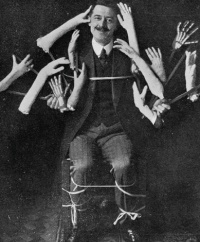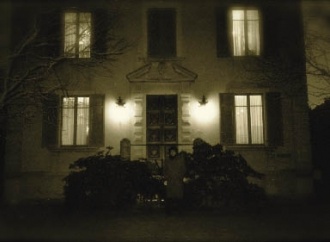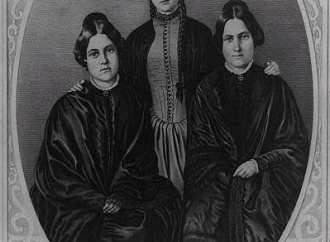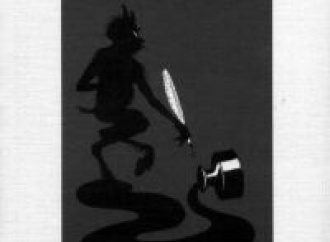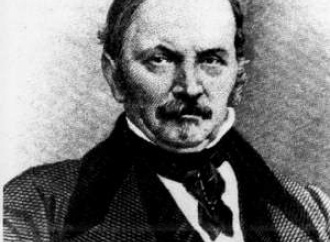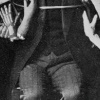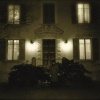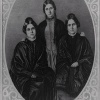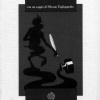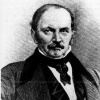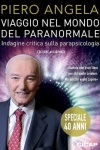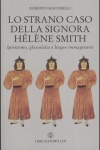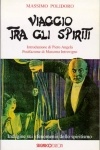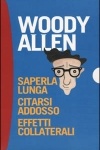Enjoying current best-seller status à³ second place on the Wall Street Journalàs booklist à³ James Van Praaghàs TALKING TO HEAVEN revives an old claim. Van Praagh believes he and certain other ìspiritualistsà® can communicate with the dead. Unfortunately, the author neglects to mention that the history of modern spiritualism has been a history of deception.
Indeed, its very founding in 1848 was a fraud. Spiritualism sprang to life in upstate New York with the rappings and alleged spirit contacts of two teenage girls known as the Fox sisters. Soon the young girls' performances captured international attention, prompting similar claims by mediums across the world. Only forty years later, with her sister Katie looking on, did Margaret Fox publicly demonstrate the tricks the schoolgirls had used in pretending to communicate with a ghost.
Despite a colorful history replete with hoaxes and trickery, Van Praagh endorses the genuineness of such phenomena as spirit photography, ìapportsà® (magically appearing items), "ectoplasm" (a substance allegedly exuded from a mediumàs bodily orifices), and even luminescent ìmaterializationsà® of spirit entities. Alas, one must look elsewhere to find evidence of the double-exposed pictures and other tricks, the hiding places where apports were stashed until needed, the evidence that ectoplasmàs ìgauzelikeà® quality (as Van Praagh characterizes it) was due to phony mediums using cheesecloth for the purpose, and the reports of those who embraced the ìspiritsà® and discovered them to be living persons in ghostly guise.
The record of such trickery, if not the actual risk of exposure, has caused many spiritualists to avoid physical phenomena. Despite his endorsement of their authenticity, when it comes to his own practice, Van Praagh is strictly a ìmental medium,à® one who uses ìpsychic abilityà® that includes alleged clairvoyance (or inner sight) and clairsentience (extrasensory feelings).
Such an approach makes it difficult for an investigator to distinguish between two possible types of deception: that involving the deliberate hoodwinking of the sitter and that in which the medium and sitter essentially fool themselves. Although many may believe in psychic ability and spirit contact, scientific evidence fails to support such claims. Many mediums, Van Praagh among them, exhibit traits that are associated with ìfantasy proneness.à®
Psychologists know, for example, that the ìvoicesà® allegedly heard by mediums are invariably their own internal thoughts, that they glean information à³ innocently or shrewdly à³ by familiar means. These include reading body language (to sense when one is factually on or off track), providing data in question form (which may, if correct, be considered a ìhit,à® but otherwise will seem an innocent query), and inviting the sitter to interpret the vague statements offered. (Van Praagh often asks, ìDo you understand this,à® or ìDo you know what this means,à® or similar questions, inviting the sitter to provide the meaning. If the sitter does not comprehend, the medium will try another tack.)
Van Praagh manages to cast discredited spiritualism in a new light: He utilizes popular belief in every type of alleged ghostly activity (flickering lights, dreams, à«meaningfulà coincidences, and the like), not just sÈance phenomena. He takes advantage of New Age popularity to include ìchakrasà® (purported ìenergy centersà®), meditation, psychic phenomena, and so on, but presenting everything in a religious rather than occult context. For example, he equates the old mediumistic ìspirit guidesà® (supposed go-betweens with the ìother worldà®) with ìguardian angels,à® thereby tapping into the currently faddish interest in angels.
His major ploy is the bookàs title, TALKING TO HEAVEN, which suggests that spirits of the dead exist not in some ethereal dimension, as earlier spiritualism implied, but in a traditional religious domain. Everyone, Van Praagh would say, can talk to Heaven. But one is reminded of the exchange in Shakespeareàs King Henry IV between Glendower and Hotspur. When the former boasts, ìI can call spirits from the vasty deep,à® the other replies, ìWhy so can I, or so can any man; But will they come when you do call for them?
Indeed, its very founding in 1848 was a fraud. Spiritualism sprang to life in upstate New York with the rappings and alleged spirit contacts of two teenage girls known as the Fox sisters. Soon the young girls' performances captured international attention, prompting similar claims by mediums across the world. Only forty years later, with her sister Katie looking on, did Margaret Fox publicly demonstrate the tricks the schoolgirls had used in pretending to communicate with a ghost.
Despite a colorful history replete with hoaxes and trickery, Van Praagh endorses the genuineness of such phenomena as spirit photography, ìapportsà® (magically appearing items), "ectoplasm" (a substance allegedly exuded from a mediumàs bodily orifices), and even luminescent ìmaterializationsà® of spirit entities. Alas, one must look elsewhere to find evidence of the double-exposed pictures and other tricks, the hiding places where apports were stashed until needed, the evidence that ectoplasmàs ìgauzelikeà® quality (as Van Praagh characterizes it) was due to phony mediums using cheesecloth for the purpose, and the reports of those who embraced the ìspiritsà® and discovered them to be living persons in ghostly guise.
The record of such trickery, if not the actual risk of exposure, has caused many spiritualists to avoid physical phenomena. Despite his endorsement of their authenticity, when it comes to his own practice, Van Praagh is strictly a ìmental medium,à® one who uses ìpsychic abilityà® that includes alleged clairvoyance (or inner sight) and clairsentience (extrasensory feelings).
Such an approach makes it difficult for an investigator to distinguish between two possible types of deception: that involving the deliberate hoodwinking of the sitter and that in which the medium and sitter essentially fool themselves. Although many may believe in psychic ability and spirit contact, scientific evidence fails to support such claims. Many mediums, Van Praagh among them, exhibit traits that are associated with ìfantasy proneness.à®
Psychologists know, for example, that the ìvoicesà® allegedly heard by mediums are invariably their own internal thoughts, that they glean information à³ innocently or shrewdly à³ by familiar means. These include reading body language (to sense when one is factually on or off track), providing data in question form (which may, if correct, be considered a ìhit,à® but otherwise will seem an innocent query), and inviting the sitter to interpret the vague statements offered. (Van Praagh often asks, ìDo you understand this,à® or ìDo you know what this means,à® or similar questions, inviting the sitter to provide the meaning. If the sitter does not comprehend, the medium will try another tack.)
Van Praagh manages to cast discredited spiritualism in a new light: He utilizes popular belief in every type of alleged ghostly activity (flickering lights, dreams, à«meaningfulà coincidences, and the like), not just sÈance phenomena. He takes advantage of New Age popularity to include ìchakrasà® (purported ìenergy centersà®), meditation, psychic phenomena, and so on, but presenting everything in a religious rather than occult context. For example, he equates the old mediumistic ìspirit guidesà® (supposed go-betweens with the ìother worldà®) with ìguardian angels,à® thereby tapping into the currently faddish interest in angels.
His major ploy is the bookàs title, TALKING TO HEAVEN, which suggests that spirits of the dead exist not in some ethereal dimension, as earlier spiritualism implied, but in a traditional religious domain. Everyone, Van Praagh would say, can talk to Heaven. But one is reminded of the exchange in Shakespeareàs King Henry IV between Glendower and Hotspur. When the former boasts, ìI can call spirits from the vasty deep,à® the other replies, ìWhy so can I, or so can any man; But will they come when you do call for them?

